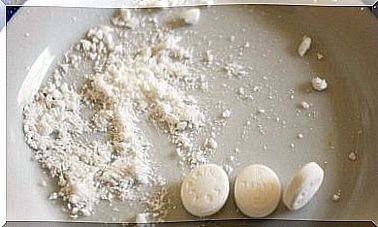Memory Leaks: What Is Normal?

Occasional memory loss is normal, but it is also a concern for many people, especially if they are older. However, in most cases there is no reason to be distressed, as these are completely manageable or treatable situations.
Many of us have wondered what is normal and what is not in terms of memory leaks. It’s not easy to establish, as we sometimes forget things too often, and it’s not necessarily due to a problem like Alzheimer’s, but rather to excess stress or other transient factors.
At other times, these forgetfulness indicate the beginning of a cognitive deterioration that may or may not precede Alzheimer’s disease. Therefore, to clear up doubts, it is best to get informed about the topic and consult the doctor. See the question in more detail below.
memory loss due to age

From the age of 20 we all start to lose brain cells and this loss increases with age. In addition, our body gradually reduces the formation of various chemicals that are necessary for neurons to function properly.
All these changes cause the brain to change the way it stores information in memory. As we age, forgetfulness is more common and the ability to learn new things is also reduced. This is not a sign of any serious health problem.
These memory changes are related to punctual matters, generally of little importance. We forget where the glasses are or what the morning appointments are. However, the characteristic of these forgetfulness is that it occurs in elderly people and does not affect the ability to work, lead a social life and live independently.
reversible memory losses
Memory loss is sometimes related to more serious health problems that are treatable and reversible. There are factors that cause frequent difficulty in remembering, but they do not imply a process of permanent memory loss. Among these factors are, for example:
- Brain diseases such as a tumor or infection.
- Thyroid problem.
- Head injuries or trauma.
- High fever or dehydration.
- Alcohol consumption or sequelae of alcoholism.
- Reaction to a drug.
- Vitamin B12 deficiency.
- Malnutrition.
In all these cases, it is recommended to seek a doctor so that he can determine the steps to be followed. On the other hand, memory loss is also often related to an emotional state of stress, grief, anxiety or other emotional problems. In that case, a psychologist helps significantly.
Irreversible Memory Loss

Difficulty remembering can also be a sign of mild cognitive impairment, Alzheimer’s disease, as well as other related dementia. People with mild cognitive impairment of the amnesic type have more memory problems than usual, but not so severe as to prevent them from leading independent lives.
Furthermore, this type of deterioration is suspected when they fail to remember important events frequently, as well as it is difficult to find the appropriate words when expressing themselves. Only the doctor can diagnose the problem.
In more severe cases, memory loss is due to Alzheimer’s disease or vascular dementia. Symptoms of these types of dementia include, for example:
- General difficulty remembering things.
- Ask the same question over and over, or tell the same story over and over.
- Getting lost in places that are familiar, or in normal conditions that would be easily remembered.
- Disorientation in time-space.
- Problems with handling money.
- Increased anxiety or aggression.
Other data to consider
Anyone who is concerned about the functioning of their memory should see a doctor, who can determine the possible causes and, if applicable, diagnose the underlying health problem early. Furthermore, this early diagnosis often significantly improves any prognosis.
Furthermore, memory exercises and new learning, however costly or time consuming, are the best way to prevent memory loss. Regular exercise is a highly recommended measure to preserve brain health.









